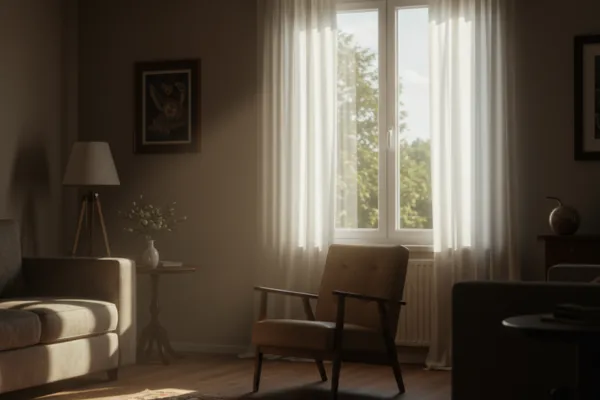
What Happens If You Die Without a Will?
What Happens If You Die Without a Will? A Guide for Families
Most of us don’t like to think about what will happen when we’re no longer here. It feels uncomfortable, even a little frightening. But knowing the facts can help you and your family feel calmer and more prepared. One of the biggest questions people ask is: what happens if someone dies without a will?
In England and Wales, the law decides who inherits if there’s no will in place. This is called dying intestate. The rules can feel surprising — and sometimes unfair. This guide will walk you through what it means for families and why planning ahead makes life so much easier for the people you love.
Why a Will Matters
A will is simply a legal document that says:
Who should inherit your money, property, and possessions
Who should deal with your estate (called your executor)
Who should look after children under 18 (if this applies)
Without it, you lose that choice. The law steps in with a fixed order of who gets what.
The Rules of Intestacy
If you die without a will, the intestacy rules decide where your estate goes. The order depends on your family situation:
Married or in a civil partnership with children
Your spouse or civil partner inherits all your personal belongings, the first £322,000 of your estate, and half of anything above that.
The other half goes to your children, split equally.
Married or in a civil partnership with no children
Your spouse or civil partner inherits everything.
Unmarried couples (even long-term partners)
The surviving partner gets nothing under intestacy rules. Everything goes to children, or if there are none, to other relatives such as parents or siblings.
No spouse or partner, but with children
Everything goes equally to your children. Stepchildren are not included unless legally adopted.
If There’s No Spouse, Partner, or Children
This is where the family tree comes into play. The law follows a strict order of who inherits next:
Parents
Brothers and sisters (full blood)
Half-brothers and half-sisters (children from one of your parents, but not both)
Grandparents
Aunts and uncles (full blood)
Half aunts and uncles (brothers or sisters of one of your parents, but only sharing one parent with them)
Children of aunts and uncles (cousins)
Half cousins (children of half aunts or half uncles)
Further distant relatives if they can be traced
If no relatives can be found at all, the estate goes to the government (called “bona vacantia”)
This order can sometimes bring surprising results. For example, an estranged half-sibling you haven’t spoken to in decades could inherit over a lifelong friend or partner.
Situations That Surprise Families
The intestacy rules can create outcomes families never expect. For example:
Unmarried partners: A woman may have lived with her partner for 30 years, but if he dies without a will, she has no automatic right to inherit. She may even lose her home if it was in his sole name.
Blended families: If you have children from a previous relationship, your current spouse will not automatically inherit everything. The children may be entitled to a share straightaway, which can cause tension or hardship.
Estranged relatives: Even if you haven’t spoken to a sibling in decades, they could inherit if you die without a will and have no closer family.
Grandchildren and stepchildren: Grandchildren only inherit if their parent (your child) has already died. Stepchildren are excluded completely unless adopted.
Who Deals with the Estate?
If there’s no will, there’s no named executor. That means family members must apply to the court to become what’s called an administrator. This can:
Cause delays at an already stressful time
Lead to disagreements about who should take charge
Leave the estate in limbo until the court grants authority
How It Affects Everyday Life
It’s easy to think of “the estate” as big sums of money. In reality, it often comes down to everyday things that matter deeply:
Who keeps the family home
Who receives treasured jewellery, photos, or heirlooms
Whether a surviving partner can afford to stay in the house
How smoothly bills, bank accounts, and funeral costs can be managed
Without clear instructions in a will, these decisions can be difficult and painful.
Common Questions
What if I already own my home with someone else?
If you’re joint tenants, the home usually passes automatically to the other owner.
If you’re tenants in common, your share follows intestacy rules unless a will says otherwise.
Do intestacy rules apply to everything?
Not always. Some things pass outside a will or intestacy, such as:
Life insurance written in trust
Pensions with nominated beneficiaries
Joint bank accounts (usually pass to the surviving account holder)
Can the rules be challenged?
In some cases, yes. For example, a dependent who is left out may be able to make a claim. But this is stressful, expensive, and often damages family relationships.
Why Families Find It Hard
When there’s no will, families often face:
Shock at how the law divides things
Delays in getting authority to deal with the estate
Conflicts between relatives who expected something different
Financial strain for those left behind
These are not rare situations. They happen every day.
What to Do Next
Making a will is one of those tasks many of us put off. Life feels busy. It can wait until next year. But knowing your wishes are written down is one of the kindest gifts you can leave your family. It removes uncertainty and helps them focus on supporting each other, not on legal worries.
If you’d like to learn more or have questions about your own situation, reach out to someone you trust for guidance. Even a short conversation can bring peace of mind.
✨ You don’t have to do everything today. But thinking about what would happen if you had no will is a gentle reminder of why planning ahead matters for you and for the people you love.

